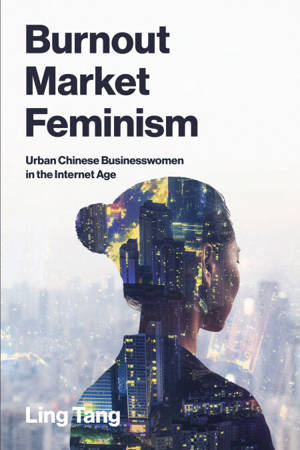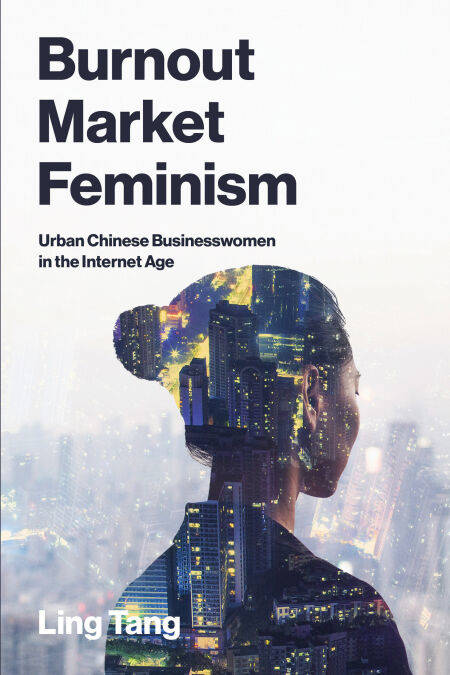
- Afhalen na 1 uur in een winkel met voorraad
- Gratis thuislevering in België vanaf € 30
- Ruim aanbod met 7 miljoen producten
- Afhalen na 1 uur in een winkel met voorraad
- Gratis thuislevering in België vanaf € 30
- Ruim aanbod met 7 miljoen producten
Zoeken
€ 49,28
+ 49 punten
Uitvoering
Omschrijving
Why elite Chinese women find themselves caught in a cycle of burnout.
Burnout Market Feminism explores the lives of elite urban businesswomen in the Internet Age. Burnout market feminism combines Han Byung-Chul's concept of the Burnout Society and feminist Li Xiaojiang's market feminism theory. To unravel the puzzle of how women in China have thrived in business despite state crackdowns on feminism, Ling Tang argues that it is important to examine the role of the market in postsocialist China and the evolving interplay between illiberal politics and a neoliberal economy.
Drawing on multisited ethnography conducted primarily in Shenzhen and Hefei during the Xi era, the author looks at the multiplicity and nuance of the lived experiences of businesswomen and their negotiations with patriarchy across different sociocultural contexts, particularly their confrontations with hetero-patriarchal intimacy norms and male-dominated guanxi business practices. Despite following diverse paths, these women share a common pursuit of achievement and growth—a pursuit that paradoxically narrows their market feminist efforts and leads to burnout, as these negotiations are often reduced to contingent bargains within a neoliberal framework. The book also extends the discussion of burnout beyond that framework, incorporating feminist critiques of women’s burnout under patriarchy and postcolonial critiques of burnout within a rhetorically socialist authoritarian state.
Burnout Market Feminism explores the lives of elite urban businesswomen in the Internet Age. Burnout market feminism combines Han Byung-Chul's concept of the Burnout Society and feminist Li Xiaojiang's market feminism theory. To unravel the puzzle of how women in China have thrived in business despite state crackdowns on feminism, Ling Tang argues that it is important to examine the role of the market in postsocialist China and the evolving interplay between illiberal politics and a neoliberal economy.
Drawing on multisited ethnography conducted primarily in Shenzhen and Hefei during the Xi era, the author looks at the multiplicity and nuance of the lived experiences of businesswomen and their negotiations with patriarchy across different sociocultural contexts, particularly their confrontations with hetero-patriarchal intimacy norms and male-dominated guanxi business practices. Despite following diverse paths, these women share a common pursuit of achievement and growth—a pursuit that paradoxically narrows their market feminist efforts and leads to burnout, as these negotiations are often reduced to contingent bargains within a neoliberal framework. The book also extends the discussion of burnout beyond that framework, incorporating feminist critiques of women’s burnout under patriarchy and postcolonial critiques of burnout within a rhetorically socialist authoritarian state.
Specificaties
Betrokkenen
- Auteur(s):
- Uitgeverij:
Inhoud
- Aantal bladzijden:
- 224
- Taal:
- Engels
- Reeks:
Eigenschappen
- Productcode (EAN):
- 9780262051903
- Verschijningsdatum:
- 4/05/2026
- Uitvoering:
- E-book
- Beveiligd met:
- Adobe DRM
- Formaat:
- ePub

Alleen bij Standaard Boekhandel
+ 49 punten op je klantenkaart van Standaard Boekhandel
Beoordelingen
We publiceren alleen reviews die voldoen aan de voorwaarden voor reviews. Bekijk onze voorwaarden voor reviews.








